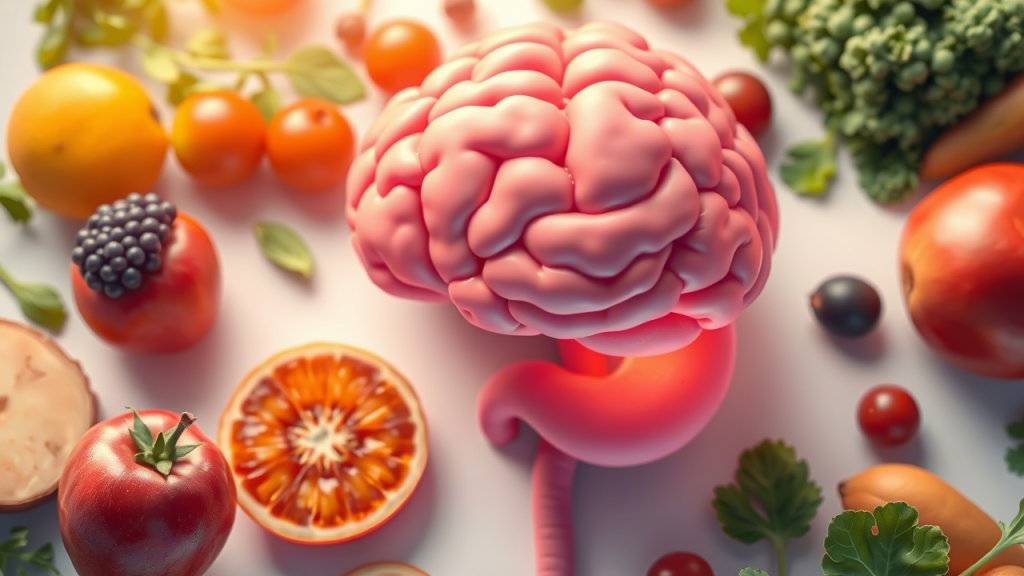For decades, mental health was seen as something that lived exclusively in the brain. But today, cutting-edge research tells a different story: your gut plays a huge role in how you think, feel, and even respond to stress.
This powerful connection between your digestive system and your brain is known as the gut-brain axis, and it might just be the missing piece in your journey toward better mental wellness.
What Is the Gut-Brain Axis?
The gut-brain axis is a bi-directional communication network between your central nervous system (brain) and your enteric nervous system (gut).
Think of it as a two-way highway:
- The brain sends signals to the gut (ever had “butterflies” in your stomach when nervous?)
- The gut sends signals back to the brain (influencing mood, memory, and even behavior)
The real stars of this relationship are the gut microbiota — trillions of bacteria, viruses, and fungi that live in your intestines. These microbes don’t just help you digest food; they produce neurotransmitters, regulate inflammation, and influence brain chemistry.
How Your Gut Affects Mental Health
Here’s where it gets fascinating:
1. Neurotransmitter Production
Many key neurotransmitters are produced in the gut:
- 90% of serotonin (your “feel-good” chemical)
- 50% of dopamine (linked to motivation and pleasure)
- GABA, a calming neurotransmitter that reduces anxiety
An imbalanced gut (called dysbiosis) can lead to lower production of these, which may worsen symptoms of depression, anxiety, and brain fog.
2. Inflammation & the Blood-Brain Barrier
Chronic gut inflammation (from poor diet, stress, or antibiotics) can weaken the intestinal lining, leading to “leaky gut.” This allows toxins to escape into the bloodstream, triggering systemic inflammation — which can reach the brain and affect mood and cognitive function.
3. The Vagus Nerve
This cranial nerve is the main communication pathway between the gut and the brain. A healthy gut can stimulate the vagus nerve, leading to better emotional regulation, reduced stress response, and improved digestion.
Signs Your Gut Might Be Affecting Your Mental Health
- Persistent bloating, gas, or indigestion
- Strong sugar cravings
- Brain fog or poor concentration
- Unexplained anxiety or depression
- Sleep issues
- Skin problems (like acne or eczema)
How to Support a Healthy Gut-Brain Axis
1. Feed Your Microbiome
- Prebiotics: Garlic, onions, leeks, asparagus, bananas, oats
- Probiotics: Yogurt, kefir, sauerkraut, kimchi, miso
2. Eat More Polyphenols
Found in dark chocolate, green tea, berries, and olive oil — polyphenols fuel beneficial bacteria and reduce inflammation.
3. Stay Hydrated
Water helps regulate digestion and supports the gut lining.
4. Manage Stress
Chronic stress alters the gut microbiome. Try breathwork, meditation, yoga, or even cold exposure.
5. Prioritize Sleep
Poor sleep disrupts gut bacteria diversity, which can worsen mental health symptoms.
6. Cut Back on Gut Disruptors
- Excessive alcohol
- Highly processed foods
- Artificial sweeteners (like aspartame and sucralose)
Final Thoughts
The gut-brain axis is one of the most exciting frontiers in both neuroscience and holistic health. By taking care of your gut, you’re not just improving digestion — you’re nurturing your mental well-being at the root.
So next time you’re feeling off, don’t just look to your head. You might want to check in with your gut, too.



